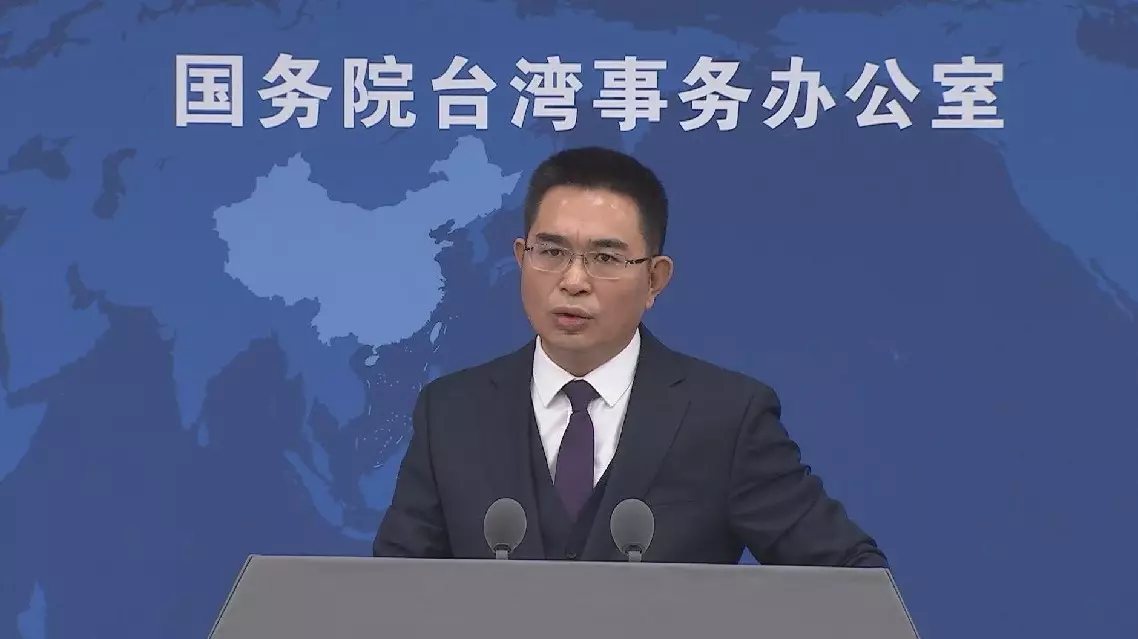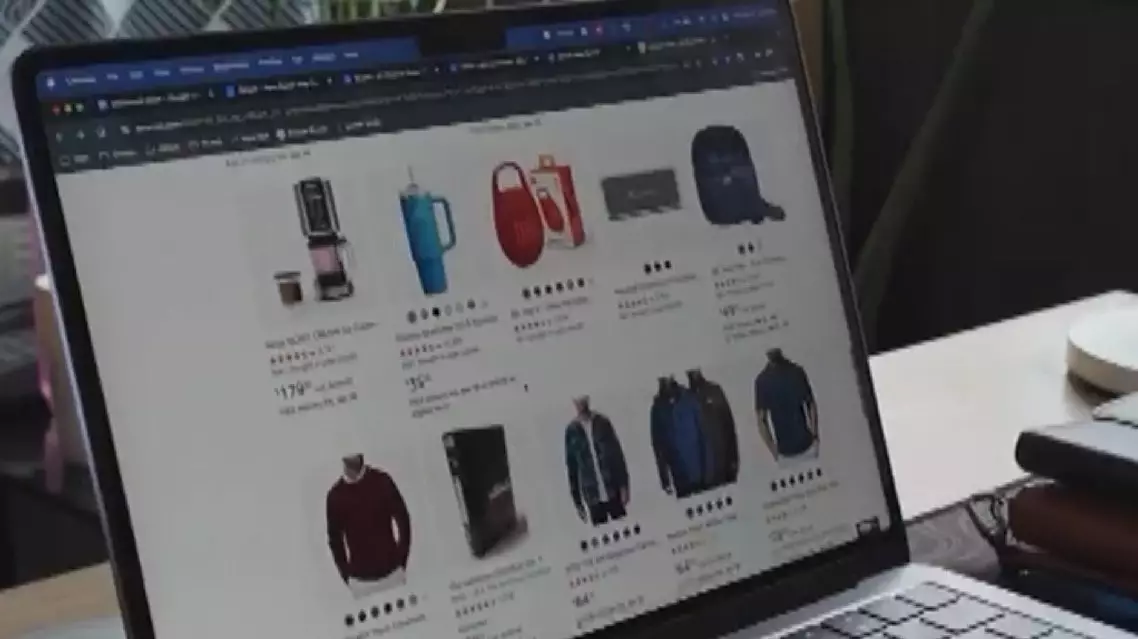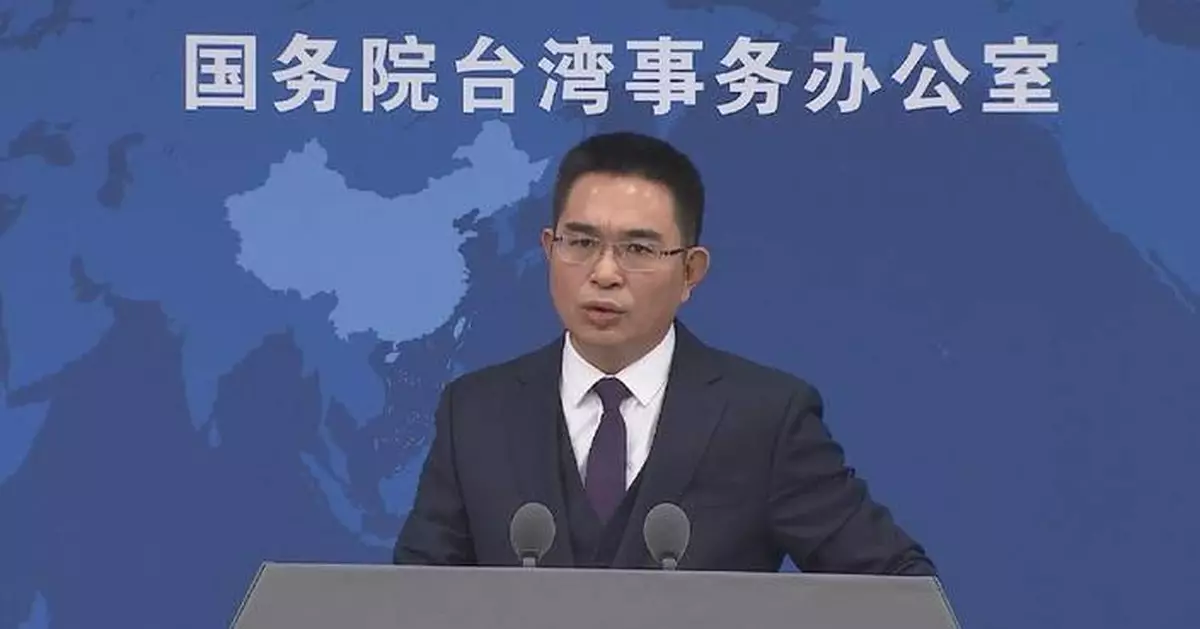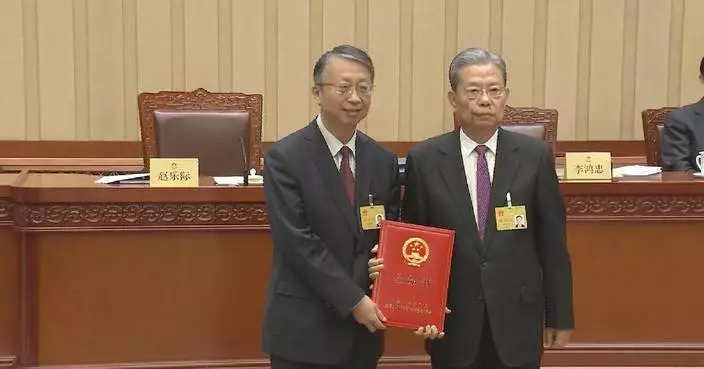The 2024 China Military Power Report released by the U.S. Department of Defense deliberately provokes cross-Strait hostility, said Chen Binhua, spokesman for the State Council Taiwan Affairs Office, at a press conference in Beijing on Wednesday.
The U.S. Department of Defense released the report on December 18, claiming that the Chinese People's Liberation Army (PLA) "could conduct a range of campaigns" to "compel" the Taiwan authorities "to the negotiation table," which "continued to accelerate Taiwan's development of asymmetric concepts and capabilities to counter" the so-called "threat" from the PLA.
"The so-called report released by the U.S. side deliberately provokes cross-Strait hostility and antagonism and incites Taiwan to buy weapons and prepare for war. It grossly interferes in China's internal affairs and gravely violates the provisions of the three China-U.S. joint communiqués. We strongly deplore and firmly oppose it," said Chen.
Chen said that there is only one China in the world and Taiwan is part of China. He said the Chinese side demands that the United States should abide by the one-China principle and provisions of the three China-U.S. joint communiques, stop hyping up issues related to Taiwan, and stop sending wrong signals to Taiwan separatist forces.
"We sternly warn the Democratic Progressive Party authorities that it's a dead end to solicit U.S. support for secession or seek secession by force. No one and no force should underestimate or misjudge our strong determination, firm will and powerful capability to safeguard our national sovereignty and territorial integrity," said Chen.

US report deliberately provokes cross-Strait hostility: spokesman
The cybercrime rate in the Philippines increased during the Christmas Holiday Season as more Filipinos opted for the convenience of online shopping, shifting from physical stores to virtual carts.
A recent study by cybersecurity firm Kaspersky revealed a staggering 40 percent increase in online shopping scams globally during the holiday season. In the Philippines, cases of phishing and fake e-commerce websites are on the rise.
Margaret Esguerra is among the victims of a phishing scam linked to GCash, the country's largest e-wallet.
She lost 53,000 pesos after receiving an SMS about an insurance fee, sent from what appeared to be an official GCash number.
"Since the SMS came from their official account, I trusted the source and I didn't want to be charged, so I clicked it and in one minute they wiped out my account that's 53,000 pesos," said Margarett Esguerra, an Online scam victim.
Art Samaniego from Scam Watch Pilipinas, a cybersecurity advocacy group, explains how scammers are able to commit this type of fraud.
"It's called a stingray attack or IMSI, I-M-S-I attack wherein cybercriminals have this small equipment that would make your connection lose connection to 5G or 4G networks. It will downgrade your connection and it will trick your cellphone to connect to their fake base station and when you are connected to that fake base station, what will happen is that they can now control, they can now see what you are doing," said Samaniego.
Numerous GCash users reported losing money overnight, even without clicking on suspicious links. GCash attributed the issue to a technical glitch and stated that funds were refunded to affected customers.
However, not everyone got their money back. Esguerra was unable to recover her 53,000 pesos. The company claimed that Esguerra shared her one-time password on a phishing link and advised her to pursue the merchant directly for a refund.
"It should have been returned. I waited, I patiently waited for their investigation. I was really hoping that they would give it back because I showed all the evidence. It's hard-earned money. It's very difficult to accept," said Esguerra.
A recent study by analysis firm TransUnion also revealed that the Philippines is experiencing an average fraud rate of 13.6 percent, significantly higher than the global average of 4.6 percent.
"The government is doing something about this. The ICD, CICC and the law enforcement agencies are doing projects to answer (to) these scams and cybercrimes, but the problem is some of these crimes are technology-dependent," said Samaniego.
GCash has released warnings, reminding the public to stay vigilant against online scams. In a statement, the company said it has been continuously investing in the latest security technologies to combat fraud. Meta has also launched a worldwide anti-scam awareness campaign aimed at protecting users from fraudulent schemes during the holiday shopping season.
Cybersecurity experts urge everyone to double-check the legitimacy of websites, avoid clicking on suspicious links, and use secure payment methods.

Rising cybercrimes target Filipino shoppers











